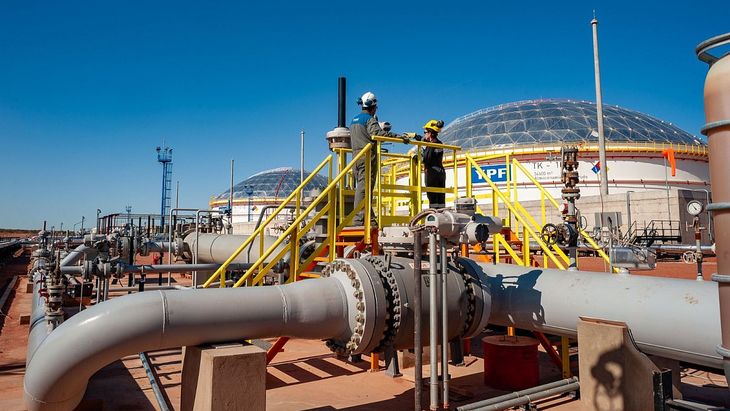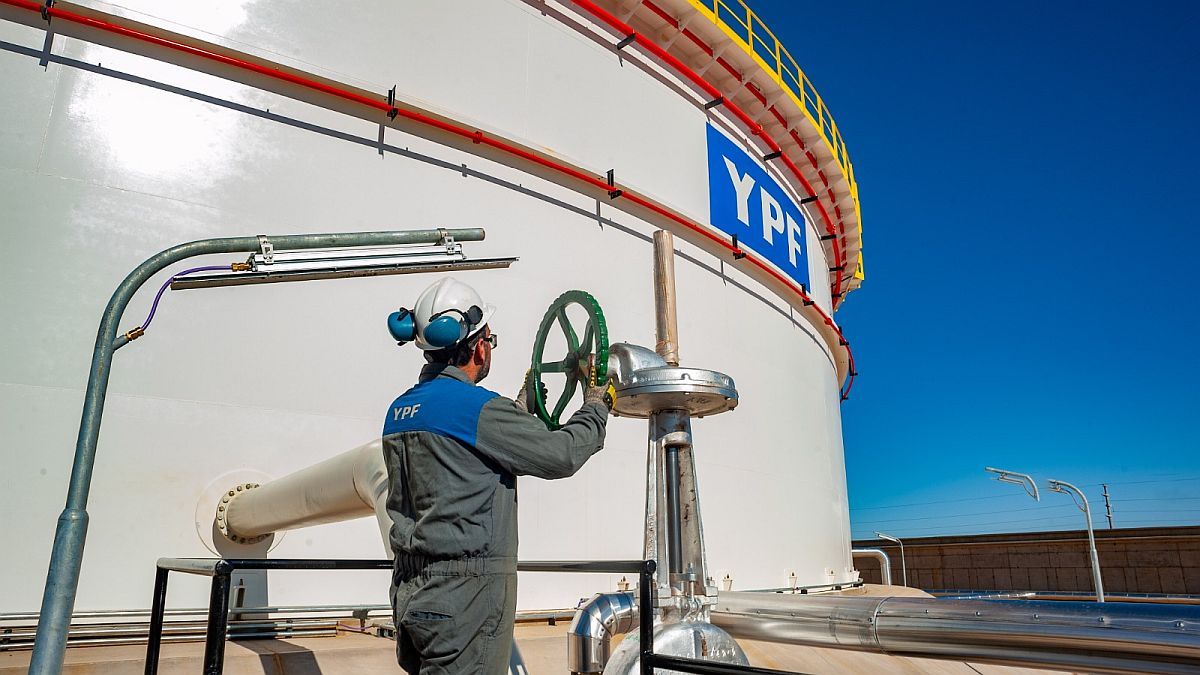The coordinating secretary of Mining and Energy, Daniel González, had announced this in a forum organized by CIPPEC. “It will be a State that ties its hands, runs away from interventionism and stops telling the private sector who they can export to,” he assured.
As anticipated by Ámbito, the Government announced the regulation of the energy chapter of the Bases law. The news was announced by the coordinating secretary of Mining and Energy, Daniel Gonzalezwho noted that ““It will be a State that ties its hands, will not intervene anymore, will run away and let the private parties act.”said the official at the Future of Energy in Argentina forum organized by CIPPEC at the French embassy.
The content you want to access is exclusive to subscribers.
The Government’s decision is known days after YPF and six partners registered the Vaca Muerta Oleoducto Sur (VMOS) project with RIGI for almost US$3,000 million to be able to export more than 700,000 barrels of oil in 2028. In the negotiations for the fine print of the VMOS, YPF did not give in to pressure from any of the partners that they intended to include in contracts between private parties a textual consideration that “regulated” the modification to the article 6 of the Hydrocarbons Law, that the national government established with thehey Bases.

Thus, one of the most relevant advances of this regulation focuses on Article 6 of the Hydrocarbons Law, which regulates the national and international marketing of these and their derivatives, under an approach that reduces state intervention and facilitates the conditions for private actors lead the development of the sector.
Main regulated measures
- Free market and competition: The regulations reaffirm the need to establish transparent energy prices aligned with international values, generating certainty for investors and actors in the sector.
- Freedom in foreign trade: Freedom to export hydrocarbons and derivatives is guaranteed, promoting the opening of the Argentine market to the world. The Ministry of Energy may only temporarily and justifiably object to exports in exceptional cases that put the security of domestic supply at risk.
- Legal security in exports: Unobjected exports may not be interrupted during the corresponding period, ensuring stability and predictability for international trade agreements, especially with regard to LNG.
The Government’s objective
Transportation, Storage and Processing Activities: The aforementioned activities are regulated under authorization and authorization figures, a figure that until now was not normatively provided for in the Law.
YPF Vaca Muerta.jpg

The Bases law 27,742 published last July 8, and which curiously bears the signature of Vice President Victoria Villarruel and not the President, proposes two essential changes for the hydrocarbon industry.
With this regulation, the Government seeks to unleash the potential of the Argentine energy sector, creating an environment of clear rules that maximize investments in strategic resources such as Dead Cowpositioning the country as a global benchmark in hydrocarbon production.
This regulation represents a key advance on the path towards an energy system where the State acts as a facilitator and not an obstacle, promoting efficiency, innovation and economic growth through the leadership of the private sector.
The Bases law 27,742 published last July 8and which curiously bears the signature of the vice president Victoria Villarruel and not the President, proposes two essential changes for the hydrocarbon industry.
Source: Ambito
David William is a talented author who has made a name for himself in the world of writing. He is a professional author who writes on a wide range of topics, from general interest to opinion news. David is currently working as a writer at 24 hours worlds where he brings his unique perspective and in-depth research to his articles, making them both informative and engaging.




